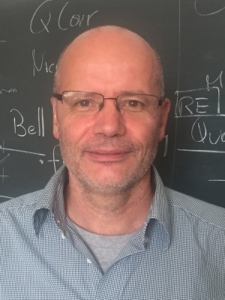Quantum Flagship projects CiViQ and QRANGE in Horizon Magazine
Prof. Valerio Pruneri, coordinator of the project CiViQ and Prof. Hugo Zbinden, coordinator of the QRANGE project, have been interviewed by Horizon Magazine on quantum communication and the development of technology that can allow 100% secure transmission of information.
Current cryptography techniques provide fundamental tools to enable secure communications in our society. However, they are vulnerable to the advent of a quantum computer. More generically, cryptographic protocols relying on classical techniques are vulnerable to undetected eavesdropping and to “store now-attack later” attacks.
By combining physical layer technologies and quantum information, quantum cryptography offers unique tools to address these challenges, and to strengthen the security foundations of our digital society.
Prof. Valerio Pruneri, ICREA Prof. at ICFO and coordinator of CiViQ, explains how Quantum Key Distribution (QKD) allows two remote network nodes to generate an encryption key almost impossible to crack, even by quantum computers.
The CiViQ project aims to develop flexible and inexpensive QKD systems that can be well integrated into telecom infrastructures and provide prototypes ready for industrial transfer and integration in large-scale application scenarios.
Like normal cryptography, QKD needs random numbers to be generated in the first place, and it is of utmost importance that the generated numbers are truly random. In this context, schemes exploiting the inherent randomness of quantum physics have been extensively investigated.
The QRANGE project wants to push the Quantum Random Number Generation (QRNG) technology further, allowing for a wide range of commercial applications of QRNG.
Prof. Hugo Zbinden, researcher at the University of Geneve and coordinator of QRANGE, explains how the QRANGE team are trying to build prototypes that are cheaper, faster and more secure than existing devices, and that have a ‘high technology readiness level’.





